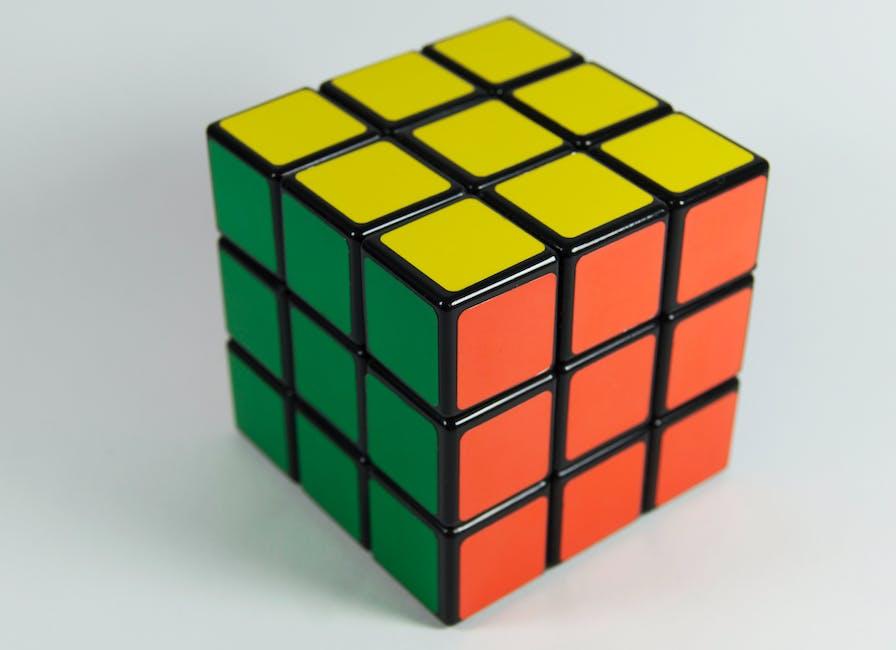Developing critical thinking skills is the cornerstone of making better decisions in every aspect of life. Whether you’re choosing a career path, solving a workplace problem, or deciding what to eat for dinner, critical thinking helps you weigh your options logically and effectively. But how do you develop this essential skill? Keep reading to uncover practical strategies, insightful tips, and the profound benefits of critical thinking in decision-making.
Key Takeaways
- Critical thinking involves analyzing, evaluating, and reasoning to make sound decisions.
- It enhances problem-solving, reduces biases, and fosters adaptability.
- Developing these skills requires curiosity, reflection, and continuous learning.
Introduction to Critical Thinking
Definition of Critical Thinking
At its core, critical thinking is the ability to think clearly and rationally. It involves analyzing information, questioning assumptions, and making reasoned judgments. Unlike impulsive decision-making, critical thinking requires deliberate thought and a structured approach to problem-solving.
Think of it as a mental toolkit that helps you dissect complex situations and find the best possible solutions.
Importance of Critical Thinking in Decision-Making
Why does critical thinking matter? Because life is full of decisions, big and small. Without critical thinking, choices are often driven by emotions, biases, or incomplete information.
For instance, imagine you’re buying a car. A critical thinker would compare models, read reviews, and consider long-term costs instead of impulsively choosing based on color or brand. This approach leads to smarter, more informed decisions.
Overview of Benefits
The benefits of critical thinking extend beyond decision-making. It sharpens your problem-solving abilities, enhances creativity, and fosters resilience. Moreover, it helps you navigate misinformation and make choices based on evidence rather than assumptions.

Core Components of Critical Thinking
Curiosity and Inquisitiveness
Curiosity is the spark that ignites critical thinking. Asking questions like “Why?” or “What if?” encourages deeper exploration of ideas. Inquisitive minds are less likely to accept information at face value, which is crucial in today’s information-saturated world.
Reflection and Self-Evaluation
Self-reflection is a powerful tool for improving critical thinking. By examining your thought processes, you can identify patterns, biases, and areas for growth.
Evaluating Personal Thought Processes
Take a moment to think about how you approach problems. Do you rely on gut feelings, or do you analyze the facts? Reflecting on your methods can reveal whether you’re thinking critically or simply reacting.
Learning from Past Decisions
Every decision, whether successful or not, is a learning opportunity. Reflecting on past choices helps you understand what worked, what didn’t, and why. This practice is essential for honing your critical thinking skills.
Intellectual Humility and Open-Mindedness
Critical thinkers embrace intellectual humility. They acknowledge that they don’t have all the answers and are open to new perspectives. This mindset fosters growth and prevents the pitfalls of arrogance or stubbornness.

Strategies to Develop Critical Thinking Skills
Practicing Evidence-Based Decision-Making
Evidence-based decision-making is the backbone of critical thinking. It involves gathering reliable information, analyzing it, and making decisions based on facts rather than assumptions.
Evaluating Sources of Information
Not all information is created equal. Critical thinkers assess the credibility of sources, whether it’s a news article, a scientific study, or a friend’s opinion.
For example, when researching a topic, consider whether the source is reputable and unbiased. This practice is especially important in the age of misinformation.
Distinguishing Facts from Misinformation
Separating fact from fiction requires a keen eye and a questioning attitude. Look for evidence, cross-check information, and avoid jumping to conclusions based on hearsay.
Recognizing and Reducing Cognitive Biases
Cognitive biases are mental shortcuts that can cloud judgment. Recognizing these biases is the first step toward minimizing their impact.
Identifying Common Biases
Some common biases include confirmation bias (favoring information that supports your beliefs) and availability bias (relying on immediate examples). Being aware of these tendencies helps you think more objectively.
Techniques to Minimize Bias
To reduce bias, seek diverse perspectives, challenge your assumptions, and consider alternative viewpoints. This approach broadens your understanding and leads to more balanced decisions.
Encouraging Continuous Learning and Adaptability
Critical thinking is a lifelong skill that requires continuous learning. Stay curious, embrace new experiences, and adapt to changing circumstances.

Applying Critical Thinking to Decision-Making
Steps for Rational Decision-Making
Rational decision-making involves a structured approach to problem-solving.
Defining the Problem Clearly
Start by identifying the problem. Be specific and avoid vague descriptions. For example, instead of saying, “I need a new job,” clarify, “I want a job that aligns with my skills and offers growth opportunities.”
Analyzing Potential Solutions
Once the problem is defined, brainstorm possible solutions. Evaluate each option based on its pros, cons, and feasibility.
Enhancing Problem-Solving Skills
Problem-solving is an integral part of critical thinking. It requires creativity, logic, and perseverance.
Creative Approaches to Challenges
Think outside the box. Sometimes, unconventional solutions are the most effective. For instance, if you’re struggling to meet a deadline, consider delegating tasks or re-prioritizing your workload.
Evaluating Outcomes Effectively
After implementing a solution, assess its effectiveness. Did it solve the problem? What could you do differently next time? This evaluation process is crucial for continuous improvement.
Importance of Collaboration and Communication
Critical thinking thrives in collaborative environments. Engaging with others, sharing ideas, and communicating effectively can lead to better decisions.

Benefits of Critical Thinking in Everyday Life
Improved Problem-Solving Abilities
Critical thinking enhances your ability to tackle challenges, whether it’s fixing a leaky faucet or resolving a workplace conflict.
If you’re interested in diving deeper into this topic, check out this guide on improving problem-solving abilities.
Better-Informed Decisions
With critical thinking, you make decisions based on evidence and logic rather than emotions or assumptions. This approach leads to more reliable outcomes.
For more insights, explore how self-reflection impacts decision-making.
Enhanced Adaptability and Resilience
Life is unpredictable, but critical thinkers are better equipped to adapt and thrive. By analyzing situations and considering multiple perspectives, they can navigate challenges with confidence.
Conclusion
Recap of Critical Thinking’s Role in Decision-Making
Critical thinking is the foundation of effective decision-making. It empowers you to analyze information, question assumptions, and make informed choices.
Encouragement to Practice and Cultivate Critical Thinking Skills
Developing critical thinking skills takes time and effort, but the rewards are worth it. Start small—ask questions, reflect on your decisions, and seek diverse perspectives. Over time, you’ll become a more thoughtful, confident, and capable decision-maker.
For further reading, explore how Socratic questioning fosters critical thinking.
Remember, critical thinking isn’t just a skill—it’s a mindset. Embrace it, and watch your decision-making abilities soar!
FAQ: Sharpen Your Mind – Developing Critical Thinking Skills for Better Decision-Making
What is critical thinking, and why is it important for decision-making?
Critical thinking is the ability to analyze information objectively, evaluate different perspectives, and make reasoned judgments. It’s crucial for decision-making because it helps you assess situations clearly, avoid biases, and choose the most effective solutions.
How can I start developing critical thinking skills?
You can start by questioning assumptions, seeking out diverse viewpoints, and practicing active listening. Engage in activities like reading, problem-solving, or debating to challenge your mind and refine your analytical abilities.
What are some common barriers to critical thinking?
Common barriers include cognitive biases, emotional influences, lack of information, and over-reliance on intuition. Recognizing these obstacles is the first step to overcoming them and improving your critical thinking skills.
How does critical thinking differ from creative thinking?
While critical thinking focuses on analyzing and evaluating information logically, creative thinking emphasizes generating innovative ideas and solutions. Both are complementary skills that, when combined, enhance decision-making and problem-solving.
Can critical thinking be taught, or is it an innate skill?
Critical thinking is not an innate skill; it can be taught and developed over time. Through practice, education, and exposure to challenging scenarios, anyone can improve their ability to think critically.
What role does emotional intelligence play in critical thinking?
Emotional intelligence helps you manage emotions, empathize with others, and communicate effectively. It complements critical thinking by ensuring that decisions are not only logical but also considerate of human factors and relationships.
Are there tools or techniques to enhance critical thinking?
Yes, tools like mind mapping, SWOT analysis, and the Socratic method can help enhance critical thinking. These techniques encourage structured thinking, exploration of alternatives, and deeper understanding of complex issues.
How can critical thinking improve my personal and professional life?
In your personal life, critical thinking helps you make informed choices and solve problems effectively. Professionally, it enhances decision-making, teamwork, and leadership, making you a more valuable and adaptable individual.
What are some practical exercises to practice critical thinking daily?
Daily exercises include analyzing news articles, solving puzzles, reflecting on past decisions, and engaging in discussions. These activities train your mind to think critically and approach problems systematically.
How long does it take to see improvement in critical thinking skills?
The timeline varies for each individual, but consistent practice and application of critical thinking techniques can lead to noticeable improvements within weeks or months. The key is to stay curious and committed to learning.



